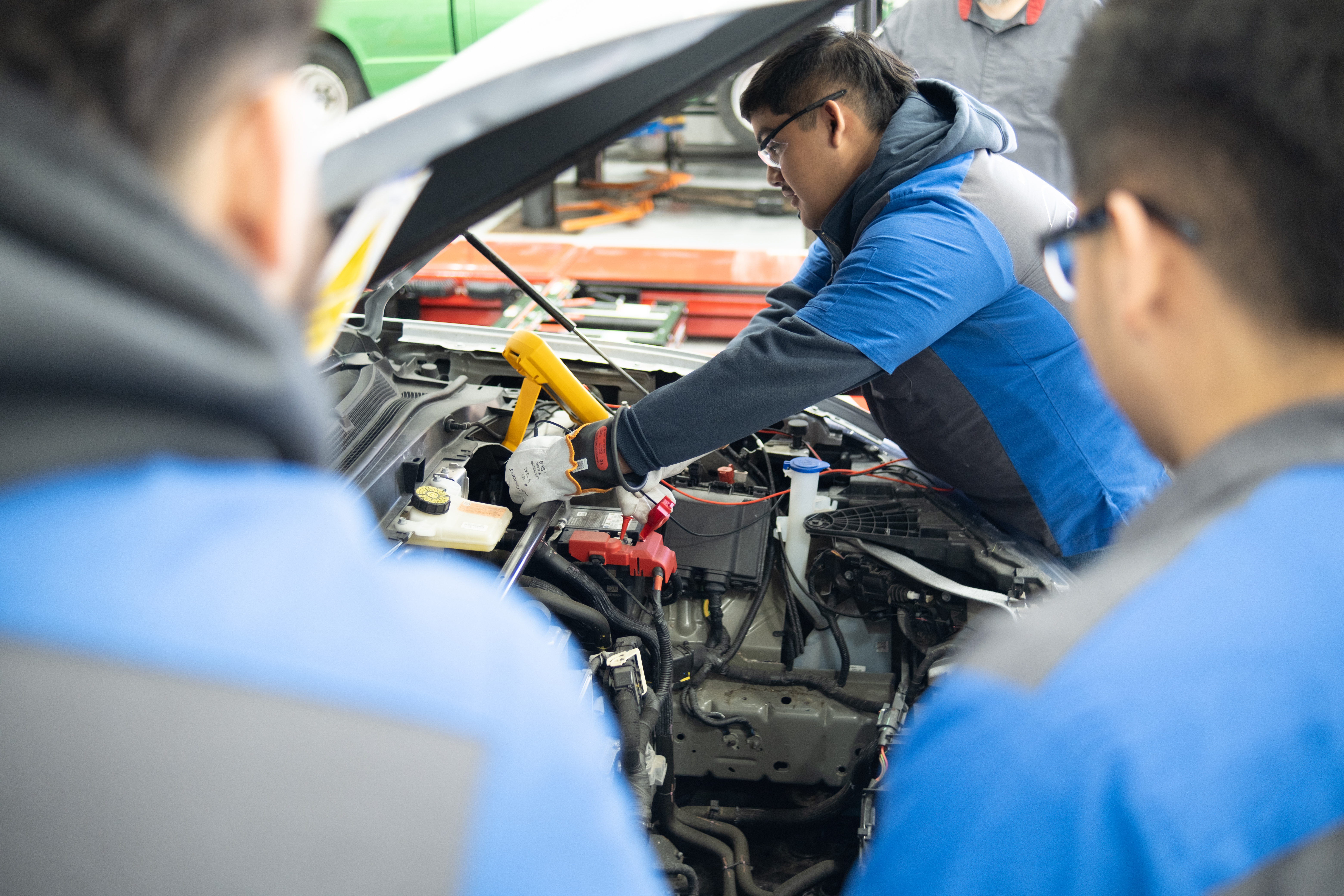Charging forward with $500K electric vehicle grant
 Published March 15, 2024
Published March 15, 2024
As electric and hybrid vehicles become a bigger part of the automotive industry, College of Lake County (CLC) is keeping up with the technology so students can learn the latest standards. The Rev Up EV Community College Initiative grant of more than $500,000 from the Illinois Community College Board will give CLC a chance to build on the foundation it has already established.
Electric vehicles are a fast-growing industry. According to U.S. Energy Secretary Jennifer M. Granholm, 1.4 million electric vehicles were sold in 2023 in the United States, a 50% growth from 2022.
The grant will impact both the Automotive Technology and Automotive Collision Repair programs at CLC. The grant funds will help purchase equipment and technology students use, like lifts and vehicles, plus instructor and curriculum development. It will also help provide courses for professionals currently working in the industry.
“Electric vehicles are very different,” said Automotive Technology Instructor Felipe Valtierra. “They have more advanced technology, a lot of automation, a lot of computers and a lot of networking.”
Automotive Lab Assistant Daniel Lopez said, “I think the increased electric vehicle training would make a big difference for us students. Working with an electric vehicle is completely different than a regular car. Once students finish their degree, they’ll be ahead of others without the extra experience.”
Since every manufacturer builds electric vehicles in such different ways, it’s difficult for one person to learn how to work on all of them without learning directly from the manufacturers. The goal of CLC’s programs is to create electric vehicle-informed students, something local employers have told CLC they are looking for.
“Every manufacturer has their own specific rules and service procedures," said Automotive Technology Instructor Derrek Keesling. " Students learn a core understanding of high voltage safety, high voltage awareness and high voltage vehicles service procedures.”
One of the biggest hurdles for electric vehicles has been a slower growth in infrastructure. An increase in knowledge about electric vehicles can translate into the knowledge needed to improve the infrastructure.
“It's easier to take an automotive or collision technician and give them the knowledge of the electric vehicle and advance it to the next level, than it is to train somebody that knows nothing about electric vehicles,” said Automotive Collision Repair Instructor Octavio Cavazos.
Even with the likely bumps along the way, CLC isn’t slowing down to not fall behind.
“We don't know where it's going. There's a lot of improvements that need to be made,” Valtierra said. “But we don't want to play catch up. We want to make sure we stay ahead of the curve.
